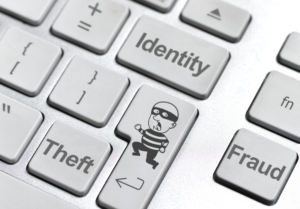Working from Home Due to COVID-19? Protect Yourself from Cyberattacks
As we start to get used to living in a world where COVID-19 is changing everything, one of the differences that many have people are doing is working from home. With so many people now working on their home networks, cybercriminals are stepping up, and they are hoping to take advantage of people making security mistakes and doing more searches, specifically on COVID-19. This is a great opportunity for these thieves to target their victims.

Keep in mind that most people who are working from home are not working on a very secure network. Cyber attackers know this, and its important that both individuals and companies take the steps to protect themselves from COVID-19 and their information.
What Can Companies Do?
During this time, managers, owners, and supervisors should be setting clear expectations about how their businesses are going to work in these new environments. When these changes come down, they should come from the top. Here are some things to keep in mind:
- You Must Understand the Threats – Business leaders should understand what threats are likely and prioritize protection methods based on that.
- You Must Release Clear Guidance – It is also important that your organization’s at-home policies are easy to understand for all employees. This should include informing staff to communicate with security teams in the case of suspicious activity.
- You Must Offer the Right Security – All business leaders should ensure that any company-owned devices are equipped with the best security capabilities. This includes the following:
- The ability to connect securely to a business-owned cloud, and access to video teleconferencing apps that are important for remote workers.
- Endpoint protection for all mobile devices and laptops including VPN tools and encryption.
- Enforce the use of multi-factor authentication.
- The ability to put a block on malware, exploits, and other threats using the best types of software and hardware.
- A plan to filter any malicious domain URLS and stop any phishing attacks.
What Can Individuals Do?
People working from home should also take steps to ensure that they are remaining safe when working remotely. Here are some things to do:
- Create Strong Passwords – You should always create strong passwords and consider a password manager to facilitate multiple passwords opposed to the same passwords across multiple accounts.
- Update Software and Systems – Install any system updates or patches as soon as you see them.
- Make Sure Your Wi-Fi Access Point is Secure – Look at your Wi-Fi access point and make sure to change the passwords and default settings.
- Use a VPN (Virtual Private Network) – A VPN is a good way to create a safe connection between a home computer and the worker’s organization.
- Be Smart About COVID – 19 Scams – There are a ton of scams out there, including fake apps, so be smart.
- Don’t Mix Work and Personal Tasks – Use your work device for your work and your personal device for personal tasks.
By taking these steps into consideration, either as a business leader or an employee, you can help to address some of the most common risks that you might face when working from home. Keep all of these tips in mind, and if something seems a little weird or strange, it’s probably best to report it to your company’s IT professional.
ROBERT SICILIANO CSP, is a #1 Best Selling Amazon author, CEO of CreditParent.com, the architect of the CSI Protection certification; a Cyber Social and Identity and Personal Protection security awareness training program.

 The compromised information could include personal data of the patients, including Social Security numbers, as well as medical and financial information. However, laboratory test results aren’t included in the breach.
The compromised information could include personal data of the patients, including Social Security numbers, as well as medical and financial information. However, laboratory test results aren’t included in the breach. Well, there’s just not enough IT talent going around. The irony is that most company higher-ups admit that cybersecurity is very important and can even name specific situations that could compromise security, such as
Well, there’s just not enough IT talent going around. The irony is that most company higher-ups admit that cybersecurity is very important and can even name specific situations that could compromise security, such as




























